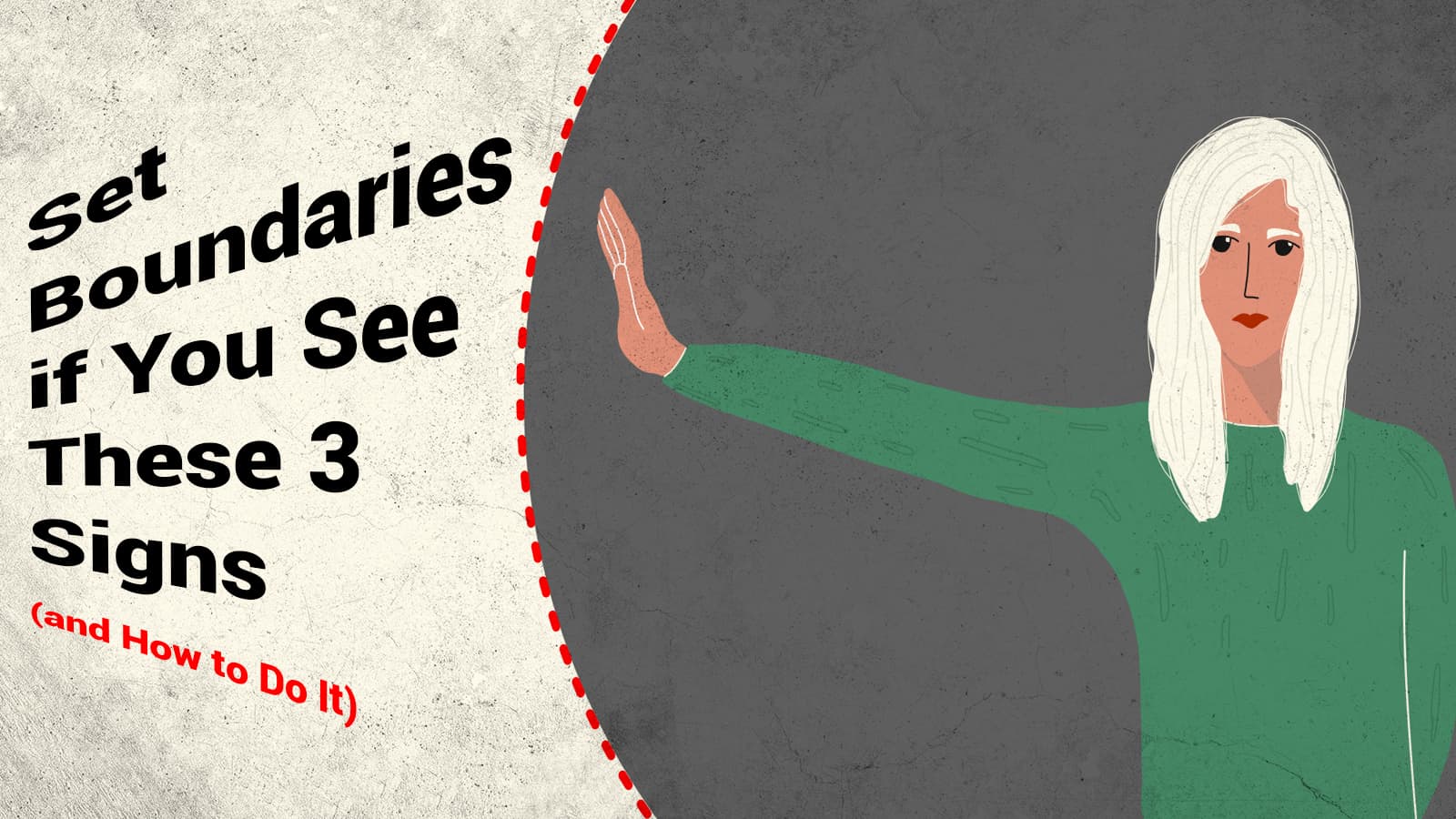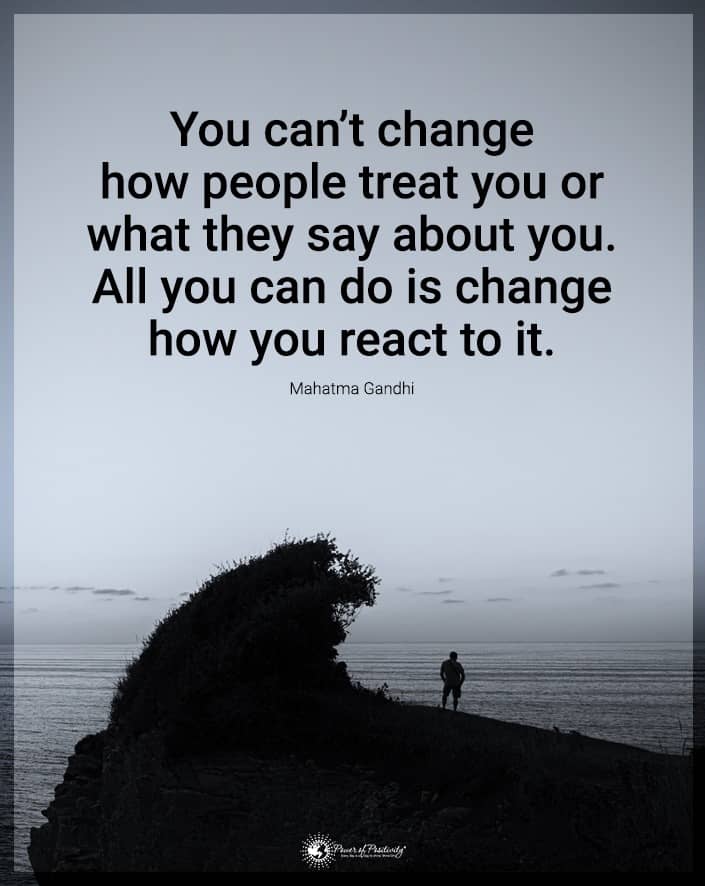When we play a game, we always expect to have some rules or guidelines that we have to follow, so we rarely set boundaries. When interacting with a co-worker, we must respect a code of conduct. Most things we do in our daily lives have to follow the rules, social queues, or even laws. But, for some reason, we never think about how to set boundaries in our relationships. No matter the nature of the relationship, whether platonic or romantic, it seems weird to impose guidelines. But is it that outrageous?
Sure, people think their friendships and romantic connections are flawless. But people sometimes disagree over little things. They will sometimes not see eye to eye. And people do many things that others find rude, annoying, or triggering. For example, you might chew with your mouth open, annoying your friends–without realizing it.
But this habit might disgust your partner. This difference in views can easily lead to petty disagreements. But this is one of the minor issues you can encounter. You must account for differences in personality, moral code, financial desires, etc. And the best way to do that is to enforce some boundaries that all parties engaged in the relationship, be it platonic or romantic, must accept.
What Are Boundaries?
A boundary is a rule you enforce to facilitate your relationship with another person. It delimitates where your rights and needs start and where they end. And they outline where your requests and needs start interfering with someone else’s rights and needs. Establishing boundaries will protect you and your needs and ensure you respect the other person’s needs. The key to setting boundaries is having open communication and being honest.
You can set a boundary for virtually any need or issue. For example, some people don’t like hugging without permission. Making that clear is setting a physical limitation. Some people need some space after a fight. That’s an emotional boundary. And the list goes on. A boundary is about how you want others to respect you and how open you are to satisfying others’ requests.
Often, people think they are entitled to certain things that rub you the wrong way. Some people believe splitting all costs evenly when going out is reasonable. But others might want to pay the exact amount they have spent. A romantic partner might think they can touch you whenever they want. But you might not like kissing in public.
Or maybe you have some trauma related to physical touch, and specific actions could trigger your anxiety. Not understanding the needs of the person you interact with can lead to many disagreements. Crossing some boundaries might even create a divide between you that you can never undo. Perhaps you don’t need to enforce a limit in every relationship. And that’s somewhat true.
You probably don’t need a complex set of rules that guides your interactions with an acquaintance you barely see. But in all close relationships, you need boundaries, or they are at least helpful. Even your parents probably do things that annoy the hell out of you, like disrespecting your privacy. So even in that case, some guidelines can benefit everyone.
But there are some situations where setting boundaries is the only way to maintain a healthy relationship. And here are three signs that you need to start discussing some guidelines with the people in your life.
3 Signs That You Need to Set Boundaries in Life (and How to Do It)
Do you see these behaviors in your daily interactions with others?
1. You Can’t Communicate Well with Another Person
Poor communication is a common issue that makes people drift apart. And most of the time, communication issues arise because of misunderstandings and differences in opinions. Even if you have the best intentions, you might encounter specific issues. You can both be great listeners and try to deliver your point as clearly as possible.
But that’s not always enough. Some people “lose meaning in translation.” But when you start noticing considerable differences in your communication styles, boundaries become necessary. Having a few disagreements here and there won’t be a dealbreaker. But being triggered by specific topics is just one example of something that needs to be addressed. Otherwise, your relationship is at risk.
When enforcing communication boundaries, you need to sit down and discuss what is bothering you with the other person. Sit them down, and start explaining what the problem is and why. Explain why that specific communication issue is creating a divide between you.
After you explain your reasons for needing a boundary, agree on what that will be. Maybe the other person should refrain from discussing a particular topic with you. Or perhaps you should become more open-minded and engage more in issues you are apprehensive about. As long as you decide together what boundary to enforce, you will resolve the problem.
2. You Feel Emotionally Unsafe When You Fail to Set Boundaries
The people around you have the power to scar you emotionally, even if they don’t mean to. They don’t know what triggers you if you don’t tell them. They won’t know how to reassure you or even give you advice if they always have to walk on thin ice. Or, on the flip side, they might not even realize they are doing something that upsets you. Some people don’t enjoy being around drama and gossip.
Others require more alone time. Still, others want to contact you as often as possible. Take texting as an example. Some people love when friends bombard them with texts, and they get sad if you don’t send them any all day. But others get mentally exhausted if their phone is always buzzing. That differs from person to person, but you can talk about it.
Setting emotional boundaries is also focused on communication. But this time, it’s about explaining what the other person is doing that affects you emotionally. It’s not just about something that bothers you. Nor is it about morality or preference in discussion topics. It’s about the other person not offering you enough attention and how you’d want them to change.
Or about you being too suffocating and what you can do to give the other the space they desire. It’s about avoiding stress triggers or trauma because of something avoidable. These boundaries also allow you to be comfortable that you will be accepted if you are vulnerable. So, they will help you break down some barriers and strengthen your connection in the long run.
3. You Feel You Lack Personal Space
No matter the nature of the relationship, having time apart from the other person is needed and beneficial. But often, the time each person needs to spend alone isn’t discussed. Or maybe the other person feels you aren’t giving them as much personal space as they would need. Seeing a friend every day for the first couple of weeks of your friendship might seem fun. But later, you might see the need to set boundaries with that new pal.
But you will start getting on each other’s nerves after a while. It’s not good to feel you must hang out with someone else. And it’s not beneficial to suffocate someone else and make them feel that obligation. But, these issues are typical because people need different amounts of interaction and attention.
Some friends only need to talk once every few weeks and still have a powerful connection. Some couples must spend at least a few days a week apart. Other people need to talk daily to feel like they still have a connection. It would help if you discussed all these different needs. Decide how often you should speak or hang out.
Tell the other person how to tell if you are being suffocated and need to disconnect from the world for a while. In the category of personal space, you can also add things like which of their friends you like having around and which you’d rather not see. That way, if you hang out in a group setting, they know who to bring, and you know who to get. Also, the physical aspect is probably the most important.
It doesn’t matter if you are friends, family, or partners. Let each other know when it’s okay to be touched and when not. All these discussions and boundaries allow you to be your own person while maintaining that connection. They also ensure you have the time to care for yourself without worrying about the other. Enforcing these personal space boundaries will do you better than you’d think.
Final Thoughts on Signs That You Need to Set Boundaries (and How to Do It)
The idea of boundaries might sound peculiar to you. They might seem extra, over the top, or even unreasonable. But they aren’t just some whims that do nothing. Boundaries have been extensively studied, and they are one of the best ways of maintaining a solid connection. Plus, societal norms, laws, and other rules are just different forms of boundaries. So, if having rules and a clear framework works so well in society, why wouldn’t they work in a relationship?
Of course, the answer is that they work. Boundaries protect both your and the other person’s rights and needs. They are based on communication and openness. Furthermore, they are always decided by all parties involved, which makes them the best solution for any problem. It would be best if you consistently enforced boundaries. But it’s imperative to implement them when you feel uncomfortable in a relationship.
If your communication is poor, one of you is emotionally hurt, or you feel like you lack personal space, something’s wrong. There is a misunderstanding between you and the other person that you can resolve by talking about the issue and making sure it won’t happen again. So, in those cases, the first thing you need to do is enforce some guidelines.





















